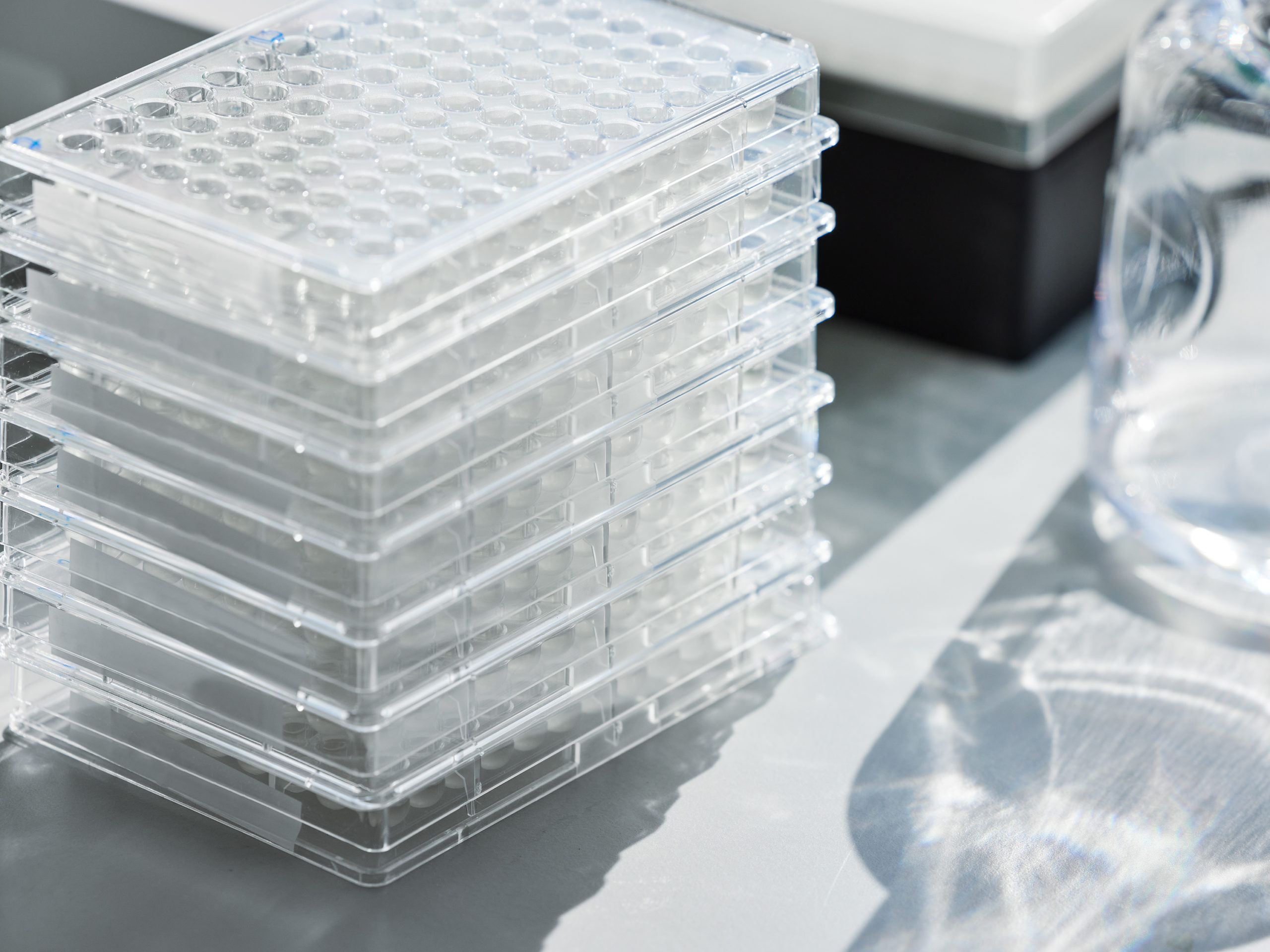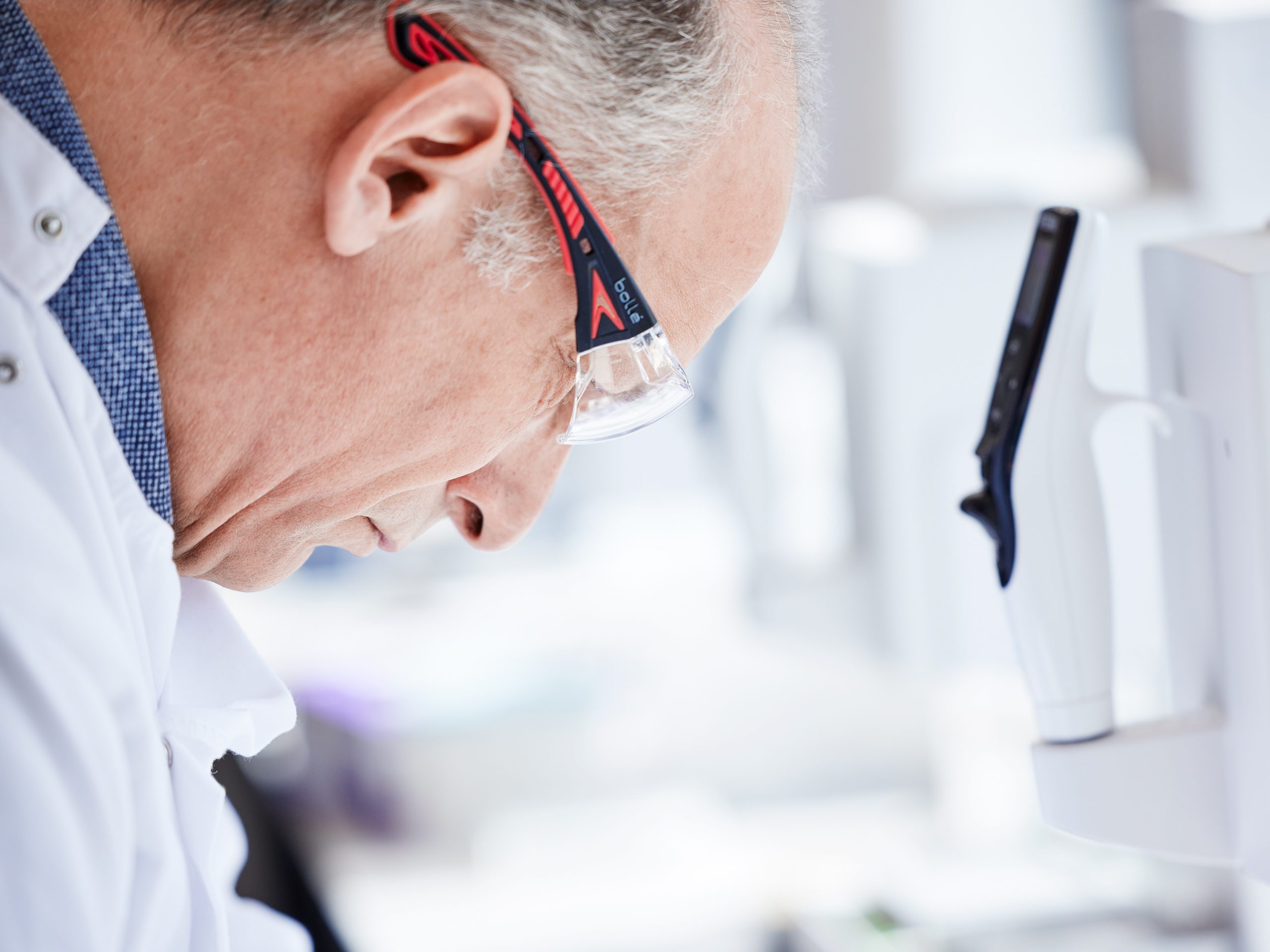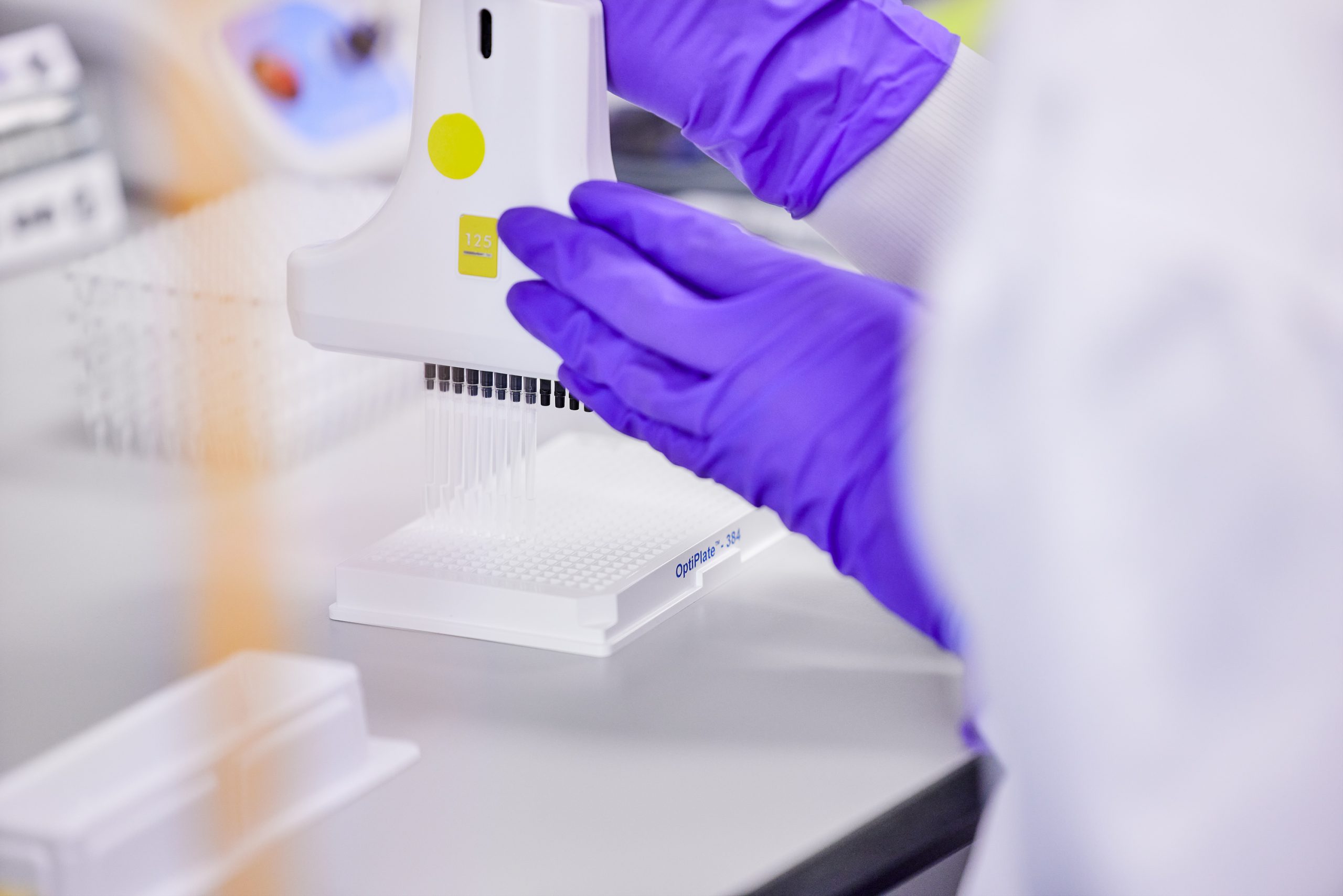
Story
Sir Greg Winter + Bicycle's early years
Bicycle Therapeutics was founded in 2009 to develop a novel therapeutic modality based on Bicycles and to develop these as transformative medicines targeting diseases with high therapeutic needs.
The Bicycle technology arose from research by Sir Greg Winter, winner of the Nobel Prize in Chemistry in 2018 for his pioneering work in phage display. This technology has led to major therapeutic advances in antibody based therapeutics; and bicyclic peptide (Bicycle) drug discovery and development. We are a transatlantic company, headquartered in the life science cluster within Cambridge, UK and the biotech hub of Boston, Mass., USA.

“Bicycles are a new and versatile drug platform - I think of them as tiny antibody mimics based on a chemical scaffold. They can be made by Darwinian evolution and manufactured by chemical synthesis. They penetrate deep into human tissues, and can be used to block/bind protein receptors, or to kill tumor cells when armed with chemical toxins. Bicycles have many possible applications in medicine, and it has been thrilling to see the first wave reach the clinic.”
Evolution of the tech
Based on the work of Sir Greg Winter and Professor Christian Heinis, we are pioneering the development of bicyclic peptides, or Bicycles – a novel class of versatile, chemically synthesized medicines.
Bicycles are fully synthetic short peptides constrained to form two loops which stabilize their structural geometry. This constraint is designed to confer high affinity and selectivity, and the relatively large surface area presented by the molecule allows targets to be engaged that have historically been intractable to non-biological approaches.
Bicycle has grown steadily and consistently to evolve its technology. Its early years were about the challenge of perfecting a totally new and unique technology, industrialising it and learning where to apply it. The next phase saw a focus on developing therapeutics, aiming to develop Bicycles to deliver agents into solid tumors with precision. We are now in the exciting phase of testing these compounds in human clinical trials to evaluate their safety and potential clinical efficacy before, if successful and approved, looking to commercialize them so we can bring them to the largest possible patient populations.
Bicycles represent a unique therapeutic class, combining the pharmacological properties normally associated with a biologic with the manufacturing and pharmacokinetic advantages of a small molecule.


Application of our technology
Bicycles represent a potentially new kind of treatment for cancer and other diseases. The hope is that our technology may lead to the development and approval of new medicines, which, if successful could mean patients might see better treatment outcomes.
To achieve a therapeutic effect while minimizing undesired side-effects in patients, drugs must bind to target proteins with high affinity and selectivity. We have designed our molecules to be highly constrained by linking a chemical connector compound, also known as a scaffold, to particular amino acids in the peptide chain. The resulting cyclized molecule, which we refer to as a Bicycle®, is locked in the preferred state to bind to the target protein. Their small size and tumor targeting are intended and designed to deliver rapid tumor penetration and retention, while clearance rates and routes may be able to be tuned to minimize exposure of healthy tissue and bystander toxicities. Bicycles are eliminated renally, which we believe minimizes potentially deleterious bystander cell interactions in the liver and gut.

